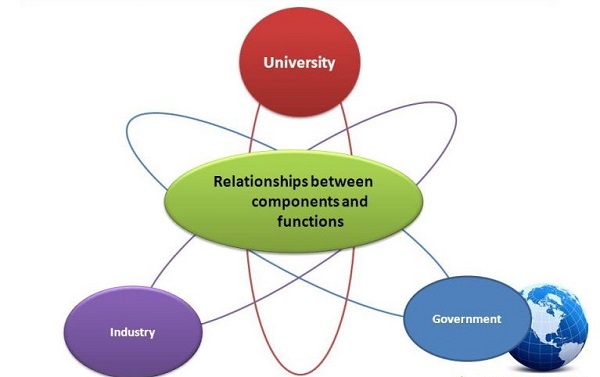
Nigeria has revealed her intention to adopt the triple-helix structure in the implementation of the Science Granting Council Initiative (SGCI) for sub-Saharan Africa.
Speaking in an exclusive interview with Science Nigeria, the SGCI coordinator in Nigeria, Dr. Mustapha Popoola, revealed plans to carry all stakeholders along in the project implementation.
According to him, the key players in the project implementation are government (research institutes), the academia (higher institutions of learning/universities) and the industry (public and private companies).
Popoola contended that there is a significant divide between academia, research institutes and industry which makes it difficult for research outputs to be useful in society.
“There exists what looks like the valley of death for research in Nigeria. This is because there is no coordination between the academia which is the nation’s think-tank that comes up with research ideas and the research institutions which carry out proper research to come up with outputs or products which are now transmitted to the industry. This results in research outputs that end up on the shelves in many institutions because there is no coordination to know the key needs of the society which the industry will be interested in investing in and eventually commercialise,” he lamented.
He further pointed out that this arrangement will also help the nation solve the problem of reinventing the wheels through duplication of research efforts, where two or more institutions engage in carrying out research in the same area, resulting in waste of both materials and resources of government.
He, however, pointed out that the implementation of the SGCI would harmonise research efforts amongst all sectors leading to better output in results and national development.
“We are clear to say that we have adopted the triple-helix model. Our major stakeholders are going to be the government at all levels, both international, continental, national and sub-national. We are also looking at the industry-private sector – SMEs, industrialists, the business people, growing concerns on one part – and the academia. In academia, we are looking at all the structures. In this case, in Nigeria’s tertiary space we have the polytechnics, universities, colleges of education and everybody working together as partners and being people-centric, solving people’s problems.
“What is going to be at the centre are the people. Any research, development, enterprise or entrepreneurship should be focused on impacting the people positively. So, these are the stakeholders that are our focus. People first and the academia, government and industry working together to solve people’s problems.”
The coordinator posited that research grants would be made available to people at all levels interested in carrying out research in science-related fields, stressing, however, the research must be people-based. He maintained it is high-time coordinated efforts are carried out to ensure that the immediate needs of the people are known and research is carried out in such fields to make sure it turns out as products worthy of being commercialised and not research outputs for academic/job promotion exercise.
“With the structure I just mentioned above, we can see that it is purely scientists and people who are interested in R&D and now we are not even looking at academia; we are also looking at the industry, government R&D. So, we are looking at citizens’ science, people’s R&D. In that case we are not looking at only supporting institutions but individuals to make sure that problem-solving research is carried out, interdisciplinary and multi-disciplinary research are carried out to solve a particular problem. It is about problem-solving going forward,” he added.
Popoola further said that apart from helping coordinate research efforts in the country, the initiative will avail Nigeria the opportunity to carry out peer-to-peer learning with 15 other countries participating in the project, with the intent to compare notes and know what is working for other sub-Saharan African countries participating in the project.
“It allows us to do peer-to-peer learning because we are not going to be operating in a silo. We are going to have the opportunity of database access from all other countries and we can share our notes to improve on whatever we call our best practice. Best practice these days is not about national best practice but continental, regional practices which are focused on checking and certifying that what you are doing is in sync with what others are doing,” he added.
The SGCI is a project to strengthen the capacities of science granting councils (SGCs) in sub-Saharan Africa, to support research and evidence-based policies that will contribute to economic and social development. Nigeria recently joined 15 other African countries on this project, to improve her research process, help her compare notes with other countries, help link researchers to grants to research work in their various fields and ensure this research addresses realistic issues in the society, instead of vague coursework that ends up on the shelves of academia and other places. The project is being implemented in Nigeria by the Tertiary Education Trust Fund (TETFUND).


